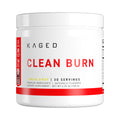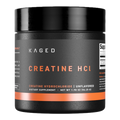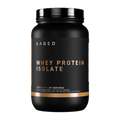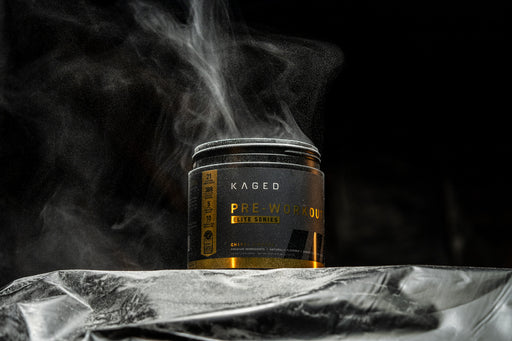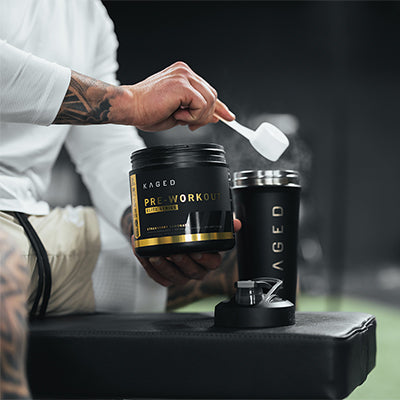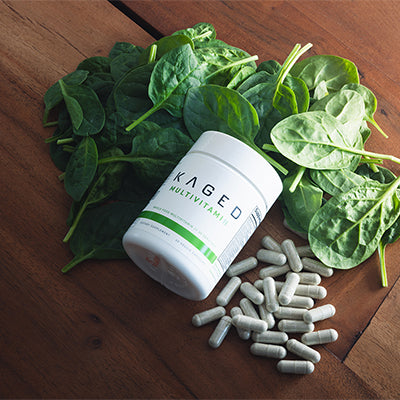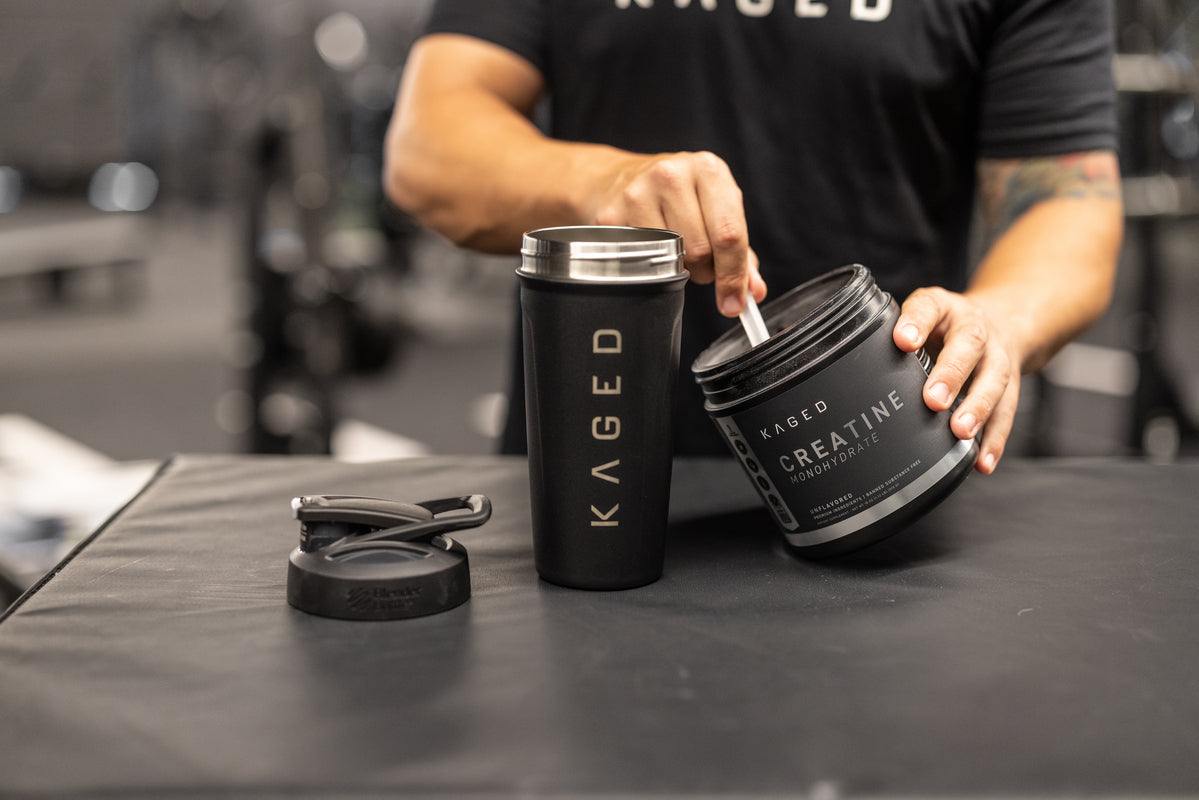Runners, it’s time to bust a major myth. Creatine isn't just for bodybuilders and gym bros.
While the benefits of creatine in research studies often focus on building muscle and improving strength, the root of these benefits comes from improved athletic performance via supporting ATP regeneration, the main source of energy in the body.
So it’s not just about getting huge, it’s about boosting performance. That's something every runner should care about.

In this article, we're going to cut through the BS and show you exactly how creatine can benefit runners and how to take it so you can get the most benefits with the least downside.
What Is Creatine?

Creatine is a natural amino acid-like compound that your body uses for energy. It's not some lab-made chemical; it's something your body already makes and uses.
You can find creatine in foods like beef, pork, and fish. Some people don’t respond to creatine supplementation, often because they eat a lot of red meat. However, you'd need to eat a very high amount to get enough to support optimal performance.
That's where supplements come in. Taking creatine as a supplement gives your body more of this ATP-supporting compound than you'll likely get from food alone. It's a safe, effective way to top up your creatine levels and unlock better performance.
The Science: How Creatine Works
Creatine works through something called the phosphocreatine mechanism.
When your muscles need energy fast, they use a molecule called ATP. Think of ATP as the energy currency of your cells. If you remember from high school biology the saying “the mitochondria is the powerhouse of the cell,” that’s because it’s where most ATP is made. The problem is that your muscles only store a tiny bit of ATP – enough for a few seconds of intense activity.
Creatine helps your body quickly remake ATP, giving your muscles a supply of energy.
For runners, this means you can maintain high-intensity efforts for longer. If you sprint to a finish line or go up a tough hill, phosphocreatine levels will help. Creatine helps keep your muscles firing.

All of this matters for runners because it translates to better performance. You can run faster, push harder, and recover quicker. Whether you're training for a 5K or an ultramarathon, creatine can give you that extra edge.
Benefits of Creatine for Runners
Here's why you should seriously consider adding creatine to your training toolkit:
Improved Performance: More Power, Less Fatigue
If you’re a sprinter, it should go without saying that creatine will help you. However, even long-distance runners tap into anaerobic training systems which creatine supports throughout races. If you’re doing intervals, tackling hills, or pushing through that final mile, creatine supplementation can support you.
Here's the deal: creatine helps your muscles produce energy faster. This means you can maintain a higher intensity for longer. You know that feeling when your legs start to burn and slow down? Creatine helps delay that, letting you push harder and longer.
Improved Recovery During Intervals
By boosting ATP regeneration, creatine helps your muscles have the energy they need to recover quickly between intervals. This means you can maintain your performance throughout your workout without experiencing the drastic drop-off in power and endurance that typically comes with fatigue.

In practical terms, this translates to more effective training sessions. Whether you're doing sprints on the track or hill repeats, creatine helps you recover faster during those repeats, allowing you to hit each interval with the same intensity as the first.
Examining Concerns About Creatine for Runners
Water Weight and Weight Gain
Given that creatine is well-researched and inexpensive, what’s the downside for runners? One of the common, long-held concerns is that it will lead to weight gain.
A 2021 review on common misconceptions about creatine pointed out several studies that showed that creatine supplementation didn’t lead to water retention or weight gain. Right from this, it’s a moot point and we can dispel much of the concerns about creatine and hold it will slow runners down by leading to increased weight.
Second, even if it does lead to gaining 1-3 pounds, the performance benefits often outweigh the additional water.
On some level, there is a trade-off with this. However, for most runners, it’s a no-brainer to choose a proven, safe supplement to support performance over carrying around an extra pound of water.
Creatine HCl Requires Less Water to Mix
Many sources of creatine require a large amount of water to mix into a beverage form that it can mix. This is often why some people experience digestive issues and water retention with creatine.
If you really are worried about water weight, then look into Creatine HCl. This is an ultra-soluble form of creatine, so it requires less water to mix when you drink it. In turn, this could lead to reduced water retention.*

SHOP CREATINE HCl
While creatine supplementation comes with a necessity to focus on hydration, many athletes appreciate being able to enjoy a serving of Creatine HCl in fewer ounces of water than would be required to make monohydrate easily mixable.
Because of that Creatine HCl may be a better creatine choice for runners.
For more on this form, check out this article on the benefits of creatine HCl.
The Myth of Creatine and Dehydration
Despite the fact that creatine has hundreds of studies backing up its safety, some myths persist. One of those is that creatine leads to dehydration and cramping. Simply, it does not. A 2008 review in the British Journal of Sports Medicine looked at an array of studies to debunk this.
This is especially of concerns to runners of course, where hydration and cramping are common and can cripple your chances in a race. Creatine has shown to have nothing to do with this, and that’s all there really is to say.
Creatine Hasn’t Been Shown to Improve VO2 Max
With all of this said, examining the research creatine hasn’t shown to improve VO2 max levels in any significant way. This means, for long-distance runners, it’s likely not as effective are shorter events that require some sprinting towards the end.
However, putting VO2 max aside, creatine still holds benefits for runners at all distances. Once again, this is because of how it supports ATP regeneration.
Common Questions on Creatine for Runners
What Should Runners Look For in a Creatine Supplement?
There are a few boxes to check.
First, look for one that’s third-party tested for banned substances. At Kaged, all of our creatine supplements are third-party verified for purity by a group called Informed Sport. They trust our products independently so you can trust you’ll get pure, high-quality creatine and nothing else.
Second, look for one that mixes well. As mentioned, Creatine HCl is more soluble than regular monohydrate. However, that doesn’t mean there’s anything wrong with regular creatine monohydrate. You’ll just need to choose a micronized, better-mixing product, and add it to a stack.
For example, you can add creatine to smoothies, other flavored supplements, or choose convenient capsules. Plain creatine monohydrate you won’t want to drink on its own.
For more on this and to help you choose, check out this article on creatine HCl vs monohydrate.
When Should Runners Take Creatine?

The research on creatine timing is mixed.
What’s most important is that you take it, not when you take it.
Should Runners Following a Loading Phase Protocol With Creatine?
You don’t have to load creatine. In fact, for runners, it may be advantageous not to. That’s because some of the studies that showed water retention with creatine were at loading phase-esque doses, around 20g per day.
Plus, loading creatine provides no additional benefit in the long term. However, loading may help you saturate the cells a few weeks faster. The research shows that without loading creatine it takes at least 28 days to accumulate in the body before providing benefits.
For more on supplements for runners, check out this article on why most pre-workouts aren't great cardio.

